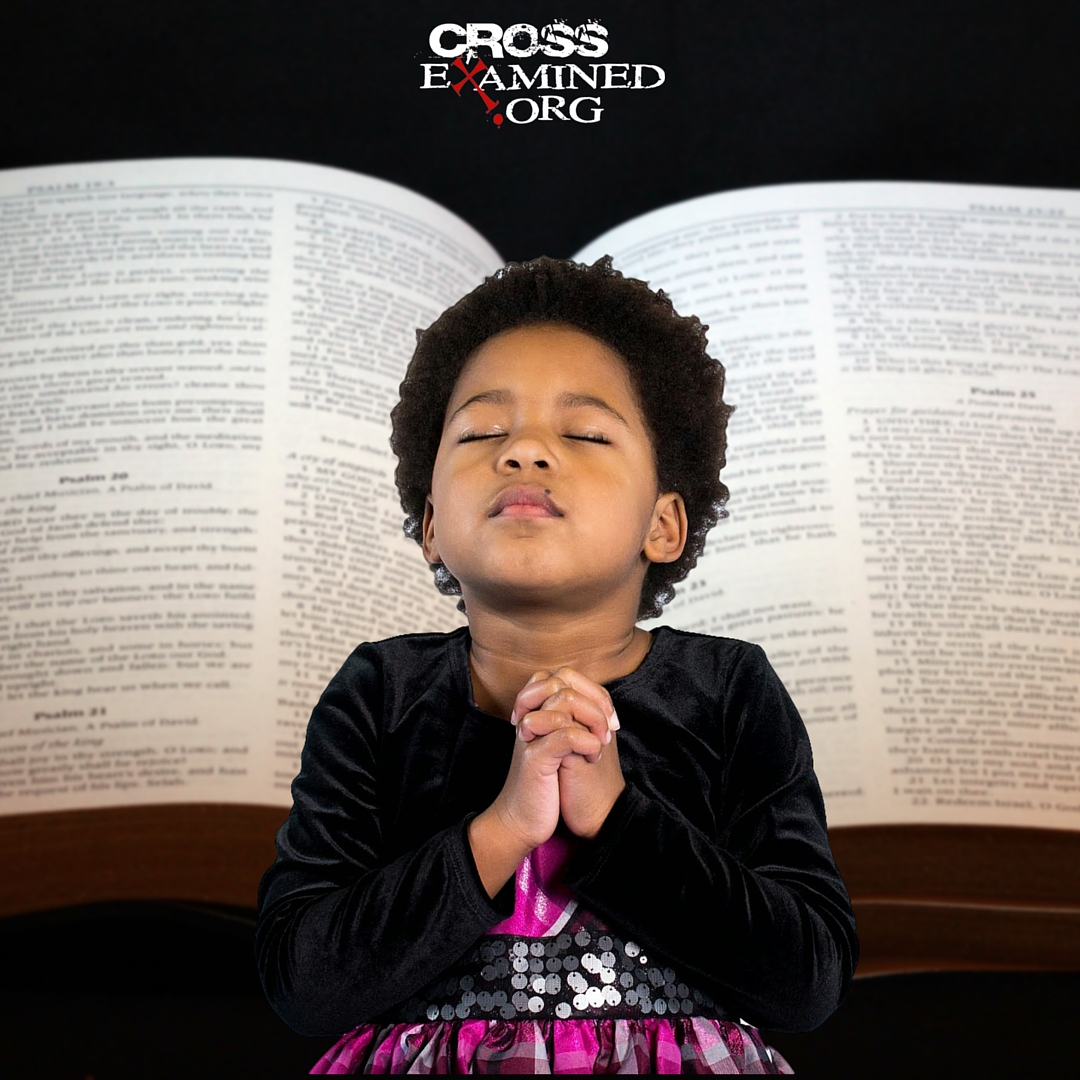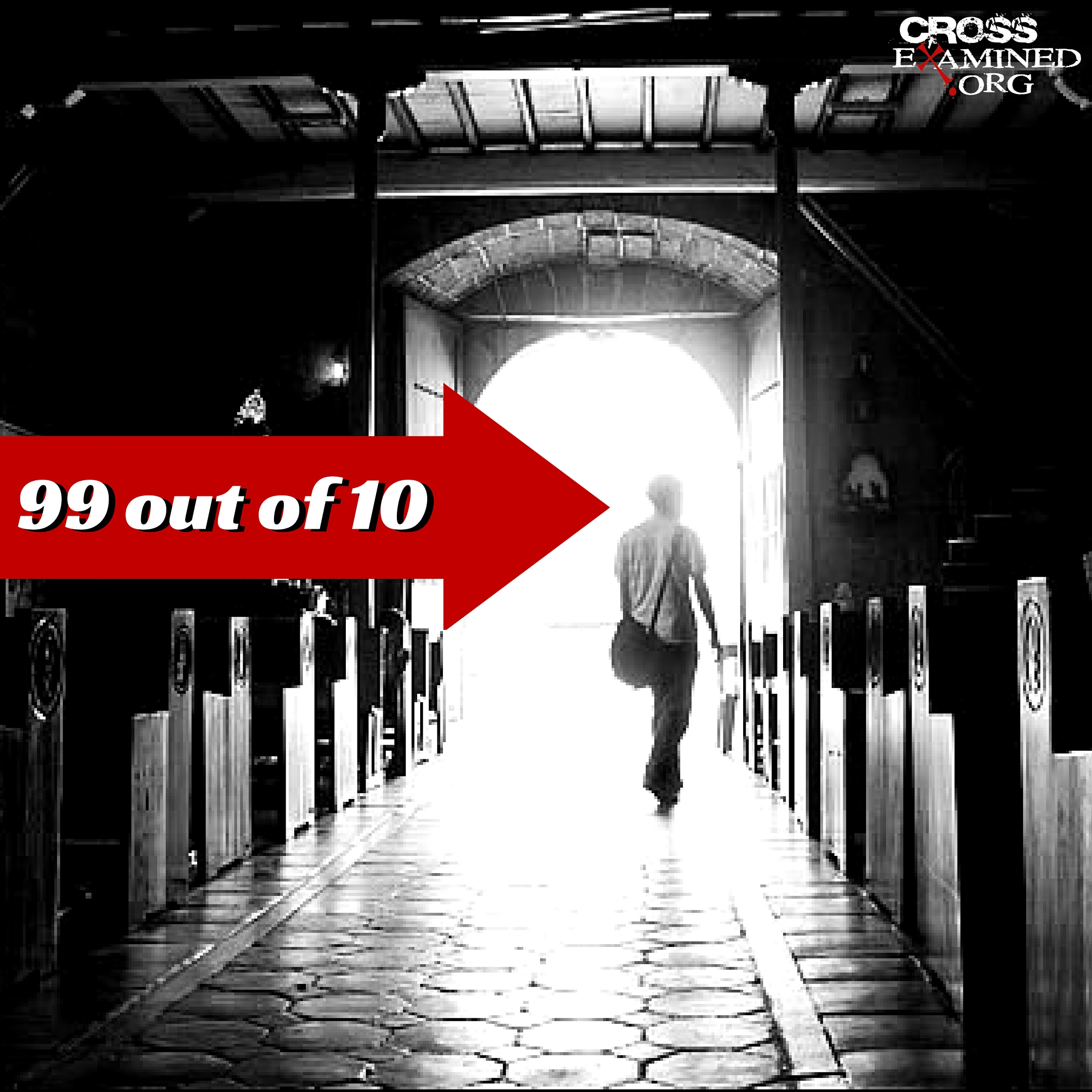How Sunday Schools Are Raising the Next Generation of Secular Humanists
Last year, for various reasons, our family had the opportunity to attend a few different churches. Each time, we debriefed on what happened in Sunday school and what the kids learned. As they recounted their experiences, I was struck by how similar they were to the stories I’ve heard from so many parents in the last few years while speaking at churches and conferences.
Parents who take the discipleship of their kids seriously are typically disappointed by the quality of their kids’ Sunday school program.
For example, I asked people on my blog’s Facebook page a few weeks ago how they felt about the kids’ program at their church. The typical response was, “It’s OK. Standard stuff. Bible stories. Snack. Some songs. Maybe a video. Nothing very deep.”
It’s well known that at least 60% of kids are leaving Christianity by their early 20s today, most turning to a secular worldview. There are a lot of factors that go into that, but today I want to talk about how Sunday school programs fail to be more influential. More specifically, I want to talk about how their failure to be more influential results in kids becoming a particular kind of secularist: the secular humanist (secular humanists are those who reject a belief in God but believe they have a responsibility to be “good” people).
To understand why this happens, we have to first understand the role of culture in influencing our kids’ beliefs.
Cultural Influence is Stronger Than You Think
I recently read Dr. John Marriott’s new book, A Recipe for Disaster: Four Ways Churches and Parents Prepare Individuals to Lose Their Faith and How they Can Instill a Faith That Endures. Marriott has spent a large portion of his academic career researching factors behind deconversions from Christianity to atheism. In his book, he describes how churches and parents inadvertently set kids up for faith crises by “over-preparing, under-preparing, ill-preparing, and painfully-preparing” them for the world.
Marriott’s chapter on under-preparation and how churches and parents often fail to appreciate the power of culture is especially powerful. It sheds much light on why the church experience is so important for kids—and why it so often doesn’t have the impact it should. I can’t do full justice to Marriott’s work and insights here, but I want to highlight a key point from that chapter as it relates to my current topic.
Marriott defines culture as “a comprehensive, shared set of largely subconscious assumptions and values of a group that are the product of both history and institutions, and which constitutes for them a social ‘reality.’ It is the space in which we live and move and have our being. As such, it has incredible power to shape the kind of people we are and what we accept as reasonable and moral” (emphasis mine).
We generally assume that what we believe is simply what is most rational, as determined by our cognitive abilities. As Marriott points out, however, that is only part of the story. He explains, “Ideas do not originate, seem reasonable, and find acceptance in a vacuum; they do so within social settings and conditions that make them seem either plausible or not. But, and this is crucial, the role of culture in influencing claims as plausible or rational is subversive. By that, I mean that the plausibility and rationality of claims is felt, not apprehended cognitively. Culture does its formative work at the affective level of the gut, not the intellectual level of the head” (emphasis mine—more on those words in a minute).
What’s the implication here? When a society buys into a given interpretation of the world, it legitimizes that interpretation, and it does so at the deepest gut level, despite what your own thinking may otherwise tell you. Consider Europe in the middle ages, for example. Nearly everyone held a Christian worldview. The church played a role in every part of life and every level of society, including the economic, social, intellectual, and cultural lives of all Europeans. The prevalence of the Christian worldview in culture reinforced its rationality. If the medieval church didn’t do a good job of explaining to people why they should believe Christianity is true, it wasn’t as critical for justifying their beliefs—those beliefs were already legitimized by culture.
Today, however, it’s secularism that is legitimized by culture. Belief in the supernatural—that anything beyond the natural world exists—can no longer lean on society’s acceptance for its plausibility. Culture now shapes our kids’ gut-level reaction to God in a negative way.
It’s up to the church and parents to offer an even stronger response.
Where Sunday Schools Go Wrong
If you’re familiar with my writing at all, you know that I’m constantly beating the drum of how parents have the primary responsibility for their kids’ discipleship. None of this is to suggest I now think that falls to the church.
But the church has a tremendous opportunity to come alongside parents and be an alternative culture that reshapes our kids’ gut-level reaction to a supernatural worldview in a positive way.
As I said at the beginning of the post, research demonstrates this isn’t happening. Sunday schools are doing very little to offer a strong response to counter the culture narrative, and what they are doing is actively contributing to kids walking away to secular humanism.
While much could be said as to how that happens, I want to focus on four problematic themes I’ve personally seen in churches, and that I’ve inferred from my conversations with other parents about the Sunday school programs in their churches. Of course, this is a generalization. There are certainly Sunday schools out there that don’t match this profile, or only do so to a mild degree. But I’ve found these to be common problems.
- Lessons focus on character development without thoughtful ties to theism (a belief in God).
The predominant message kids get in many Sunday schools is that they should be good people. They should love others. They should forgive. They should share. They should give to others.
That’s nice. I want my kids to do all those things.
But there are critically important questions, given the competing secular narrative, that are rarely discussed, like:
- Why is it that we can call anything good? If God didn’t exist, there would be no objective basis for calling anything good or bad. Everything would be a matter of opinion because there would be no higher-than-human moral authority.
- Why should we be good people? If God didn’t exist, there would be no objective reason why anyone should live in any particular way. The word should imply a moral obligation that can’t logically exist in an atheistic world.
- What evidence is there that God even exists?
No, these aren’t philosophical questions kids can’t understand. In Talking with Your Kids about God, I provide conversation guides for these and many related topics that are being used with kids as young as first grade. It’s not that it’s not possible; it’s that the church hasn’t woken up to the necessity. It’s easier to teach a lesson on being a helpful friend.
Many of these church kids will grow up to maintain the value of being “good,” but not understand how the existence of God is necessary to define that (nor understand why there’s a good reason to believe He exists).
- There’s not enough emphasis on understanding the identity of Jesus and why it matters.
Secular humanists often appreciate Jesus as a “good moral teacher” in a way that irreligious people without a Christian background do not. And if you listen to the average Sunday school lesson, you couldn’t be blamed for thinking that was the basic church message as well. But whether Jesus was God makes all the difference in the world.
With the culture saying He was only a good moral teacher, Sunday schools should be responding by helping kids answer questions like:
- Did Jesus really claim to be God?
- Who did the disciples think Jesus was?
- Why did people around Jesus conclude He wasn’t “just” a good moral teacher, as so many people believe today?
- What difference does it make if Jesus was God incarnate or just a good moral teacher?
By not addressing these deeper questions, Sunday schools prepare kids to appreciate Jesus’s moral teachings but also to drop their vague belief in his divinity once the culture becomes the stronger narrative. Once again, we end up with secular humanism.
- Bible teaching is limited to what’s in the Bible, and rarely addresses questions about the Bible.
Kids hear all about amazing biblical miracles in church, then go into a world that says those miracles aren’t possible.
Repeat.
What are they to take from that intellectual tug-of-war?
If the Bible is going to be taken seriously, Sunday schools can’t just keep retelling stories. They have to address why there’s a reason to believe those stories are actually true. In a world that says the Bible is a book of fairy tales, Sunday schools should proactively be answering questions like:
- How were the books of the Bible selected?
- Why were books left out of the Bible?
- How do we know we can trust the Bible’s authors?
- How do we know the Bible we have today says what the authors originally wrote?
- Does the Bible have errors and contradictions?
(If you’re not sure how to answer these, they are all chapters in Keeping Your Kids on God’s Side.)
Without this knowledge, kids can learn to appreciate secular humanist values like courage through David, leadership through Moses, or self-sacrifice through Jesus, but they won’t have any reason to conclude the Bible is a true telling of reality that’s authoritative for their lives. The stories they hear each week will become just one more source of literary moral inspiration for a secular humanist.
- Churches aren’t supporting parents enough in discipleship, so parents end up focusing on raising “nice” kids.
Something I consistently hear from parents is that the kids in their child’s Sunday school can be just as negative of an influence as kids outside the church. I’m not talking about things that would be natural for all kids to struggle with (general sinfulness), but things that you might expect to be different with church-going families. For example, it’s common that kids in Sunday school are now telling others in class that the Bible isn’t true or that believing in God is stupid.
In many cases, this is because parents—even those with deep faith themselves—don’t know how to equip their own kids for today’s world. The culture has already done its work at the gut level, the parents send their kids to Sunday school hoping to counter that, the Sunday school isn’t up to the task (for reasons already discussed), and the church ends up looking like the outside culture—a place filled with kids who adhere to a secular worldview, consciously or not.
It’s a vicious cycle. And few churches are working to equip parents with the understanding they need to respond faithfully to culture at home. Meanwhile, parents do what’s easier and focus on raising kids with the kinds of “good values” any secular humanist would be proud of. Those kids eventually discard Christianity in favor of simply being “good without God.”
The church and parents lose the culture war together.
Last year, a team and I started a ministry to change that: Grassroots Apologetics for Parents (GAP). GAP works with local churches to launch and host chapters that equip parents with a deeper understanding of the Christian worldview and apologetics. Chapters complete two 10- to 12-week studies each year. Dozens of pilot chapters launched in the fall or are launching this Spring. Click here to learn more about bringing GAP to your church—we would love to have you part of this movement.
It’s going to take a lot for the church to catch up to the impact of culture. But it can be done. Just as parents and the church can lose the culture war together, we can win the culture war together. It starts with the realization that the battle is happening whether we want to fight or not. The choice is then ours: Prepare and engage, or keep giving kids goldfish and playing games each Sunday.
If you’re interested in curricula designed to take kids to this deeper level in churches and private schools, check out Foundation Worldview Curriculum and Deep Roots Bible Curriculum.
Natasha Crain is a blogger, author, and national speaker who is passionate about equipping Christian parents to raise their kids with an understanding of how to make a case for and defend their faith in an increasingly secular world. She is the author of two apologetics books for parents: Talking with Your Kids about God (2017) and Keeping Your Kids on God’s Side (2016). Natasha has an MBA in marketing and statistics from UCLA and a certificate in Christian apologetics from Biola University. A former marketing executive and adjunct professor, she lives in Southern California with her husband and three children.
Original Blog Source: http://bit.ly/2Rr1wPt













Leave a Reply
Want to join the discussion?Feel free to contribute!